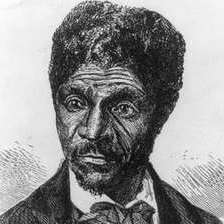 The Center for Digital Research in the Humanities at the University of Nebraska-Lincoln recently debuted an online database of more than 500 court cases in which enslaved persons had sued to gain their freedom. The Dred Scott case in 1857 is the most famous of such cases but there were many more.
The Center for Digital Research in the Humanities at the University of Nebraska-Lincoln recently debuted an online database of more than 500 court cases in which enslaved persons had sued to gain their freedom. The Dred Scott case in 1857 is the most famous of such cases but there were many more.
The project collected, digitized, and makes accessible the freedom suits brought by enslaved families in the Circuit Court for the District of Columbia, Maryland state courts, and the U.S. Supreme Court. African American enslaved families accumulated legal knowledge, legal acumen, and experience with the law that they passed from one generation to the next. The freedom suits they brought against slaveholders exposed slavery a priori as subject to legal question. The suits in Washington, D.C., the nation’s capital, raised questions about the constitutional and legal legitimacy of slavery, and by extension, affected slavery and law in Maryland, Virginia, and all of the federal territories.
The online database concentrates on cases filed in Washington, D.C. in the 1820s and 1830s. More than 100 of these cases involved slaves who were represented by Francis Scott Key, the author of the “Star Spangled Banner.” As such the database is named “O Say Can You See: Early Washington, D.C., Law and Family.”


Is it possible to read the cases of Francis Scott Key?